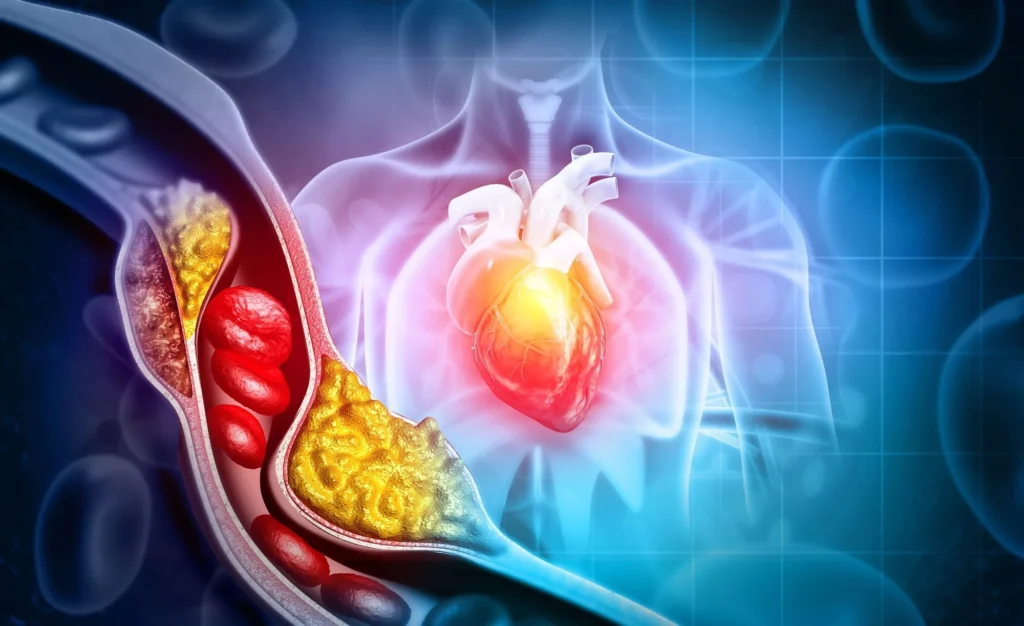cardiovascular disease associated with type 2 diabetes mellitus are intricately linked, representing a significant burden on global health. The association between these conditions amplifies the risk of morbidity and mortality, necessitating a comprehensive understanding of their connection. This article explores the mechanisms, risk factors, complications, and strategies to mitigate cardiovascular disease in patients with type 2 diabetes.

Understanding the Connection Between CVD and T2DM
Type 2 diabetes mellitus is a chronic metabolic disorder characterized by insulin resistance and hyperglycemia. These conditions contribute to the development and progression of cardiovascular disease through mechanisms such as:
- Atherosclerosis: Elevated glucose levels lead to endothelial dysfunction and increased plaque formation in blood vessels.
- Inflammation: Chronic low-grade inflammation common in T2DM accelerates vascular damage.
- Dyslipidemia: Abnormal lipid profiles, including elevated triglycerides and low HDL cholesterol, are prevalent in diabetic patients.
- Hypertension: High blood pressure is a frequent comorbidity, exacerbating cardiovascular strain.
Major Risk Factors for CVD in Type 2 Diabetes
Patients with T2DM face heightened susceptibility to cardiovascular disease due to a combination of modifiable and non-modifiable factors:
1. Hyperglycemia
Persistent high blood sugar damages blood vessels and contributes to arterial stiffness.
2. Insulin Resistance
Impaired glucose uptake by cells increases the risk of metabolic syndrome and CVD.
3. Obesity
Excess body fat, especially visceral adiposity, promotes systemic inflammation and lipid abnormalities.
4. Hypertension
Blood pressure elevation intensifies cardiac workload and accelerates arterial damage.
5. Lipid Disorders
Dysregulated lipid metabolism in diabetes fosters atherogenic plaque buildup.
6. Lifestyle Factors
Smoking, sedentary behavior, and poor dietary choices amplify CVD risks.
Complications Arising from the CVD-T2DM Nexus
1. Coronary Artery Disease (CAD)
A leading cause of death in diabetic patients, CAD results from narrowed or blocked coronary arteries.
2. Heart Failure
Diabetes-related metabolic disturbances increase the risk of heart failure through diastolic dysfunction and ischemia.
3. Peripheral Artery Disease (PAD)
Restricted blood flow to the extremities, common in T2DM, raises the risk of non-healing ulcers and amputations.
4. Stroke
Hyperglycemia and hypertension in T2DM elevate the risk of ischemic and hemorrhagic strokes.
Preventive Strategies for cardiovascular disease associated with type 2 diabetes mellitus
1. Glycemic Control
Maintaining optimal blood sugar levels through medication, diet, and lifestyle modifications reduces vascular complications.
2. Lipid Management
Statins and fibrates play a vital role in correcting lipid abnormalities and minimizing atherogenic risks.
3. Blood Pressure Control
Angiotensin-converting enzyme (ACE) inhibitors and angiotensin receptor blockers (ARBs) are commonly prescribed to manage hypertension in diabetes.
4. Lifestyle Modifications
- Diet: Adopt a heart-healthy diet rich in whole grains, lean proteins, and unsaturated fats.
- Exercise: Regular physical activity improves insulin sensitivity and cardiovascular fitness.
- Smoking Cessation: Eliminating tobacco use mitigates vascular and cardiac risks.
5. Medications and Novel Therapies
Emerging therapies, including GLP-1 receptor agonists and SGLT2 inhibitors, show promise in reducing cardiovascular events in diabetic patients.
6. Regular Monitoring
Periodic assessments of blood pressure, lipid profiles, and HbA1c levels are crucial for early intervention.